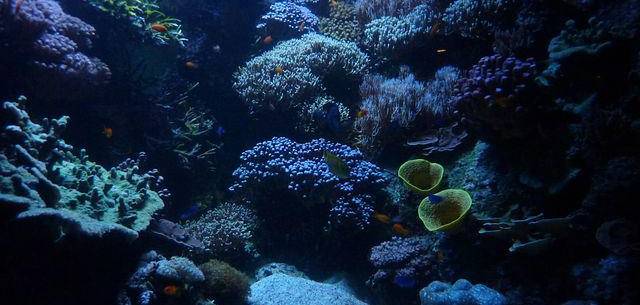
The Aquatic Life Institute launches a benchmark tool to evaluate seafood certifications and their effectiveness with respect to aquatic animal welfare standards.
The Aquatic Life Institute has issued a publicly available tool that evaluates the animal welfare standards of some of the most well-known, global aquaculture certification schemes.
Aquatic Life Institute carried out a thorough evaluation of animal welfare standards for 6 of the most prominent certifications in the aquaculture industry. These certifiers included Global Animal Partnership (GAP), RSPCA assured, Naturland, Friend of the Sea, Global G.A.P and Best Aquaculture Practices (BAP). Certifications are widely used by the aquaculture industry in order to verify the practices carried out on farms. Unfortunately, until very recently, most certification labels did not include meaningful animal welfare interventions, and focused only on aspects such as environmental impact or food safety, and excluded individual animal welfare considerations. However, consumers are increasingly seeking transparency from the aquaculture industry, as many instances of poor animal welfare conditions have been uncovered on farms around the world, including farms certified by well-known schemes.
It is crucial for the aquaculture industry to avoid humane washing, which is the practice of making a misleading claim about the treatment of animals or the conditions in which they are born, raised, or killed. Therefore, the implementation of meaningful and accountable animal welfare interventions is imperative and will result in benefits for animals, the environment, and public health alike. As a result, the Aquatic Life Institute (ALI) has engaged with certification schemes for over 2 years, to ensure that standard language be updated to include animal welfare. ALI launched an aquaculture certification benchmark tool that analyzes current welfare requirements within each farming standard and highlights the areas of opportunity that exist for significant welfare improvements.
The areas of evaluation include environmental enrichment, space requirements and stocking density, stunning and slaughter, feeding practices and water quality. The report recognizes the newly released Global Animal Partnership Atlantic salmon welfare standard, as the most welfare-comprehensive standard to date. This standard incorporates the latest science-based interventions to improve welfare for farmed salmon. Certified facilities must include enrichments at all life stages, adhere to strict stocking density limits, monitor water quality on a daily basis, and comply with adequate stunning and slaughter requirements. It also includes a novel ban on insects in farmed fish feed. Insect farming is a potentially significant industry of concern due to the unknown animal welfare consequences and negative environmental impacts throughout the production cycle.
“This benchmark will prove to be a valuable tool to any company in the food sector during their seafood purchasing decision-making process. It will support them in making more informed choices about certified products entering their supply chain, and allow the public to be better informed about practices associated with seafood production. The tool will also help certification schemes that are lagging behind in aquatic animal welfare, by shedding light on improvements that will allow them to stay relevant”, states Catalina Lopez, Director of the Aquatic Animal Alliance The benchmark will be updated annually, and the next editions will compare more certification schemes and measure additional areas of concern
Posted on 2022-06-23 09:43








Comments